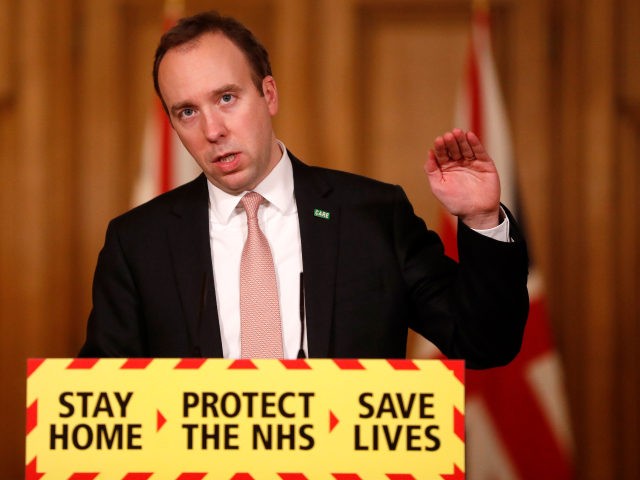Health Secretary Matt Hancock said that it was “too early to say” if the end of COVID-19 restrictions will come on June 21st as scheduled.
Mr Hancock made the remarks amidst the latest government figures revealing that up to three-quarters of new Chinese coronavirus cases are the Indian variant. Another mutant strain has also been found in the UK, first identified in Thailand, the government says.
“It is too early now to say, yet, whether we can take the full step four on June 21. I desperately want us to, but we will only do that if it’s safe.” Mr Hancock said during a press conference on Thursday, according to The Times.
The health secretary added that the government would “make a formal assessment ahead of June 14 as to what steps we can take on the 21st. And we will be driven by the data”.
“This pandemic isn’t over yet,” Hancock warned.
Ambiguity on the government’s position on next month’s full reopening was further compounded by comments from Business Secretary Kwasi Kwarteng, who told BBC Breakfast on Friday: “We’ve said that as far as I can see there’s nothing in the data that will delay the date but we’ve said we’re always reviewing the data and we’ll come to a final conclusion on whether to reopen on 21 June.”
However, Mr Kwarteng continued: “It is impossible for anyone to know what the situation will be like in a week or two week’s time.”
Adding: “As far as I am concerned we have been looking at the data and we have said repeatedly that we won’t make a final decision about 21st June until the 14th June, a week before the established date.
“I can’t guarantee one thing or another now, I think we just have to look at the data, be patient and we’ve got to be very vigilant.”
Mr Hancock also said on Thursday that the number of coronavirus cases was rising and was the highest since April 12th. “The variant, first identified in India… is still spreading and the latest estimates are that more than half — and potentially as many as three-quarters — of all new cases are now of this variant,” he said.
In the last week, cases of the Indian variant had doubled. Public Health England (PHE) also claims that it is 67 per cent more transmissible than the Kent strain identified earlier in the year.
There are now also an estimated 100 cases of the Thai variant in the UK, which was first found in Thailand in people who had travelled to Egypt. Little is known about the strain at present, and PHE is currently conducting tests.
Both Germany and France have imposed restrictions on British travellers in the past week over fears of the Indian variant.
Earlier this month, it was revealed that even though there was growing concern about the new variant, 20,000 people travelling from India entered the UK in the first three weeks of April, while some 100 planes had landed at British airports from India following travel restrictions from the south Asian country.
Breitbart London reported on Friday that despite lockdown and other restrictions, the UK saw 18 million arrivals in 2020 and issued nearly 670,000 new visas, with Chinese nationals making up the highest number of those being granted student visas.

COMMENTS
Please let us know if you're having issues with commenting.